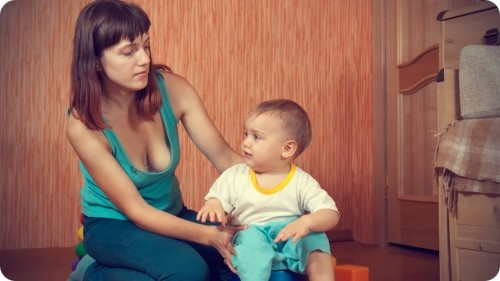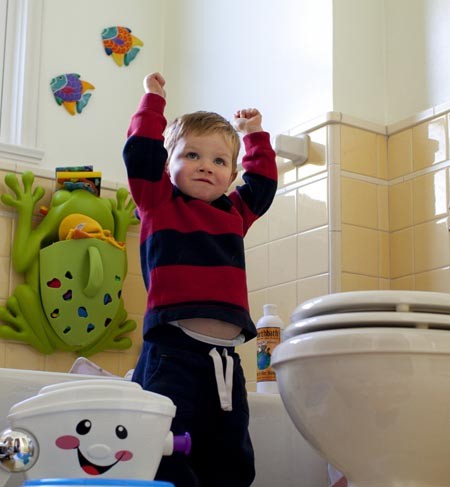Simple sounding to anyone who has not been through it, potty training your child can be a complicated time for you both. Finding the balance of reinforcing the good behaviours and accepting the mishaps is the key to ensuring the special bond between you and your little one is strengthened, during this milestone moment.
Contents
What Is Potty Training?
Potty training is a key marker in the development of independence in your little one and can set them up for other such milestones in their young lives. Ensuring that they are supported and encouraged during this phase will give them the courage and confidence to deal with other developmental phases throughout their lives. As such, this is a crucial stage which can cause anxiety for parents and their little ones alike.

Common Ways To Potty Train Your Child
Three are different ways that people undertake to help encourage independent use of the potty, which include using positive reinforcement, rewards or punishment. Since you want this to be a positive experience, we recommend the reward system, using encouragement when they have done things as you’d wish, and forgiving mistakes.
There are different ways that you can make potty time fun, such as singing songs or playing some kind of a game to make them associate potty training with fun. You should also impression the positive reinforcement on them at the right moment. Just as they have performed the act, praise them.
To engender the trust that this is a positive phase for them, you should ensure that you let your child sit on the toilet fully dressed, in order to gain confidence. This means they will relax in the bathroom atmosphere and not see it as a stressful experience. It’s also important to back this up with supportive and reassuring parenting. From tone of voice to actions, you must show them patience, and let them know that accidents do happen.
Do Girls Potty Train Quicker Than Boys?
Usually girls develop the motor skills necessary for successful potty training before boys do, which means that if you have a daughter, she is more likely to get the hang of the potty training before a son will. That said, it can vary from child to child, and so long as you have a strong bond with your child, you should be able to support them through this exciting stage.
When Do I Start Potty Training?
Contrary to some beliefs, there is no right or wrong time to potty train. With that said, usually before 18 months the child has not developed the correct motor skills. However, you will know when it feels right, based on your child and their other experiences.
Many parents make the error of assuming the age is more an indicator of readiness to train, than abilities. It is best to seek signs given by the child that they are ready. When they become aware of their bowel movements, some children will stop the activity they are doing. This, or grabbing at their diaper can be sure signs that your child is developed to the point of starting to prepare for potty training.

Does Potty Training Mean No More Wet Beds?
Many parents decide to keep a nappy on when their little one is sleeping, since accidents still happen in the night. Actually, most children develop regulation of their bowels quicker than their bladder, so you might need to accept that night time wetness will still occur, particularly during the early stages of potty training. Allow them some time to make mistakes, and be prepared.
People wishing to seek more advice, or in a rush to potty train their child successfully, should have a look at Start Potty Training: 3 Day Method program. Paced with essential tips, this is the oracle of potty training.